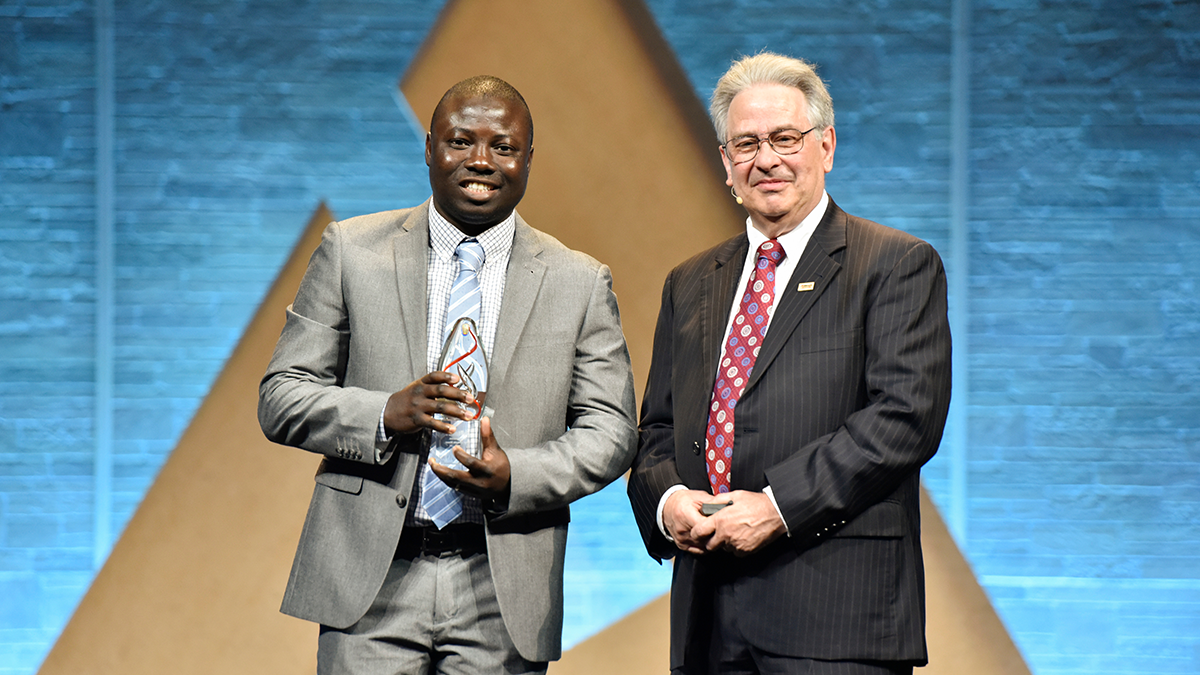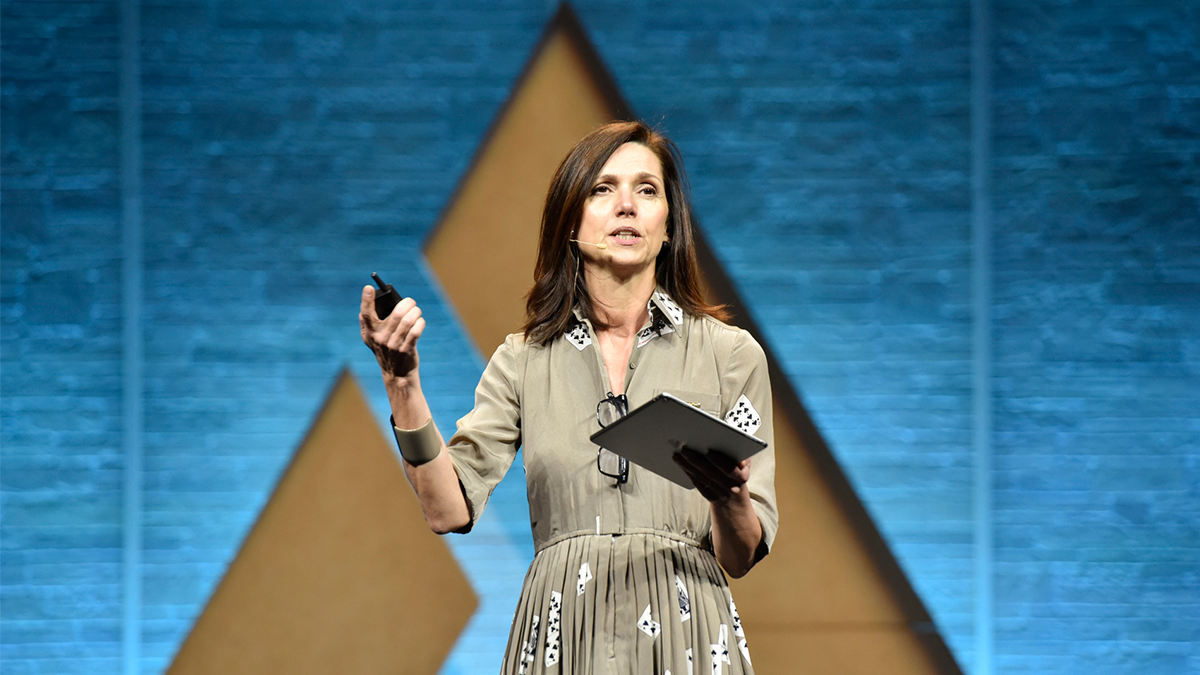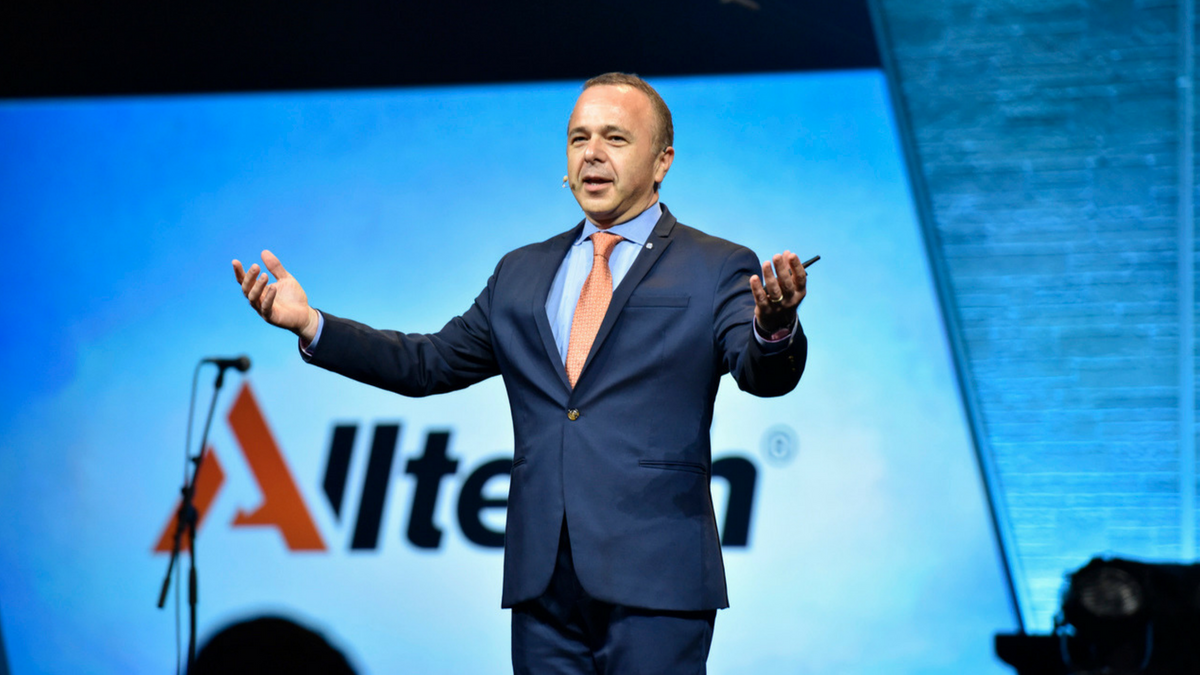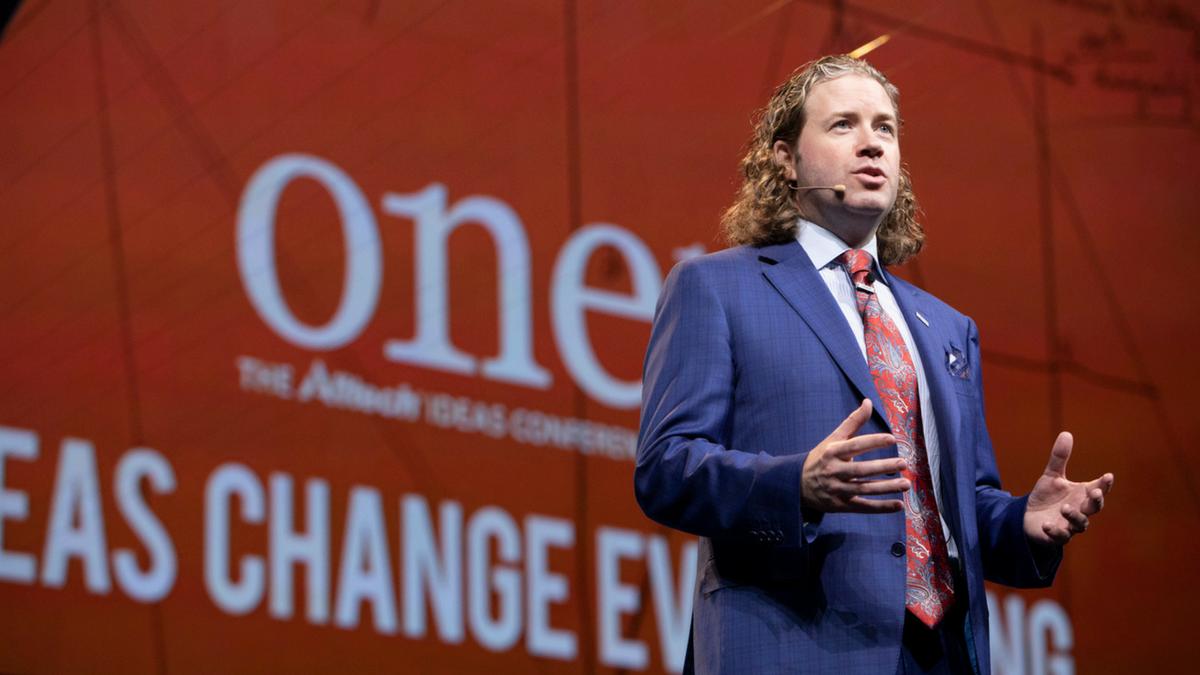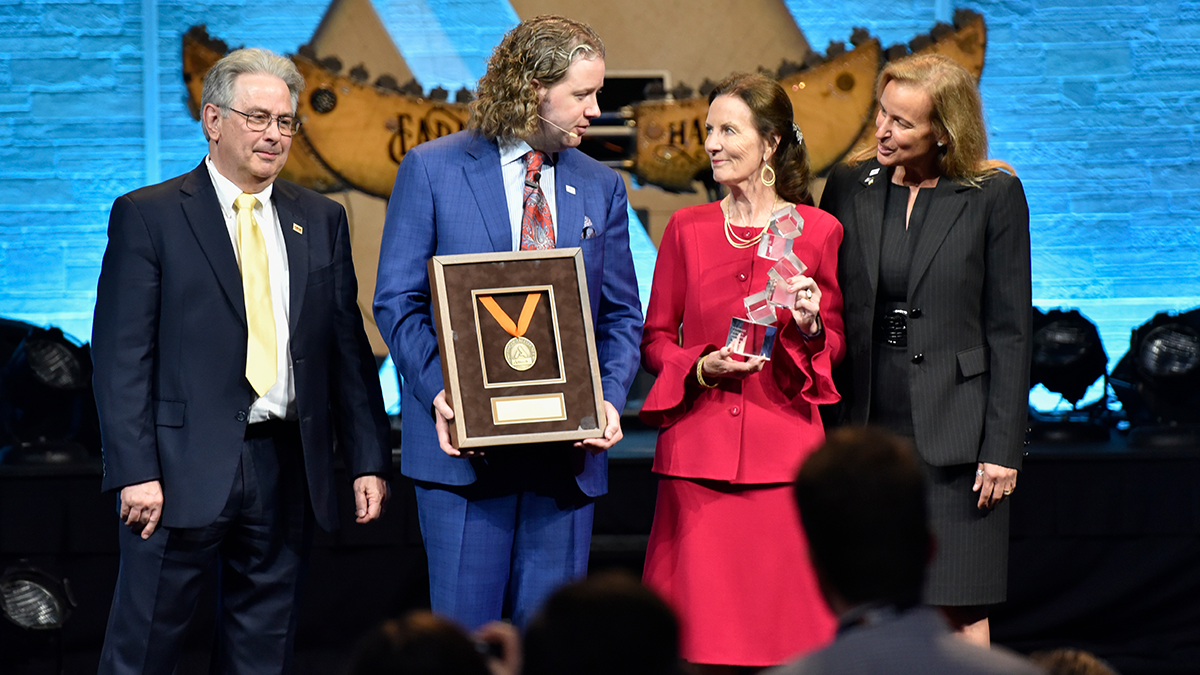Dr. Gregory Jicha: Stopping the clock on dementia
The following is an edited transcript of Tom Martin's interview with Dr. Gregory Jicha, chief clinician and professor at the University of Kentucky Alzheimer's Disease Center. Click below to hear the full interview:
Tom: According to the Alzheimer's Association, an estimated 47 million people are living with dementia worldwide, and this number will triple by 2050. With a new case diagnosed every three seconds, can we stop the clock on dementia? It’s one of many questions we have for Dr. Gregory Jicha, chief clinician and professor at the University of Kentucky Alzheimer's Disease Center. Thank you for joining us, Dr. Jicha.
Gregory: Thank you for having me.
Tom: Given what you know from your research, are you optimistic that we can indeed stop the clock on dementia?
Gregory: I am an incredibly optimistic person, but my thoughts are based in reality, and, yes, indeed, they are optimistic. We have discovered what causes Alzheimer's disease at almost every level. We have almost every piece solved, and we know how to go about attacking each of those targets with a set national plan in the U.S. of having a cure or medicine for the prevention of Alzheimer's by 2025. That means the medicines we hold in our hands today are the cures of tomorrow.
Tom: You and your team are actively engaged in several state-of-the-art clinical trials in an effort to find better treatments and investigate potential cures for Alzheimer's disease and other forms of dementia. Can you tell us what you're looking into?
Gregory: We're looking into a variety of different mechanisms, and what we know about Alzheimer's is it is a long process that begins about 20 years before the first complaints of memory loss. There is a slow buildup of amyloid in the brain, inflammation and oxidative damage, eventually leading to neurofibrillary tangles, cell death and dementia. So, we are looking at a variety of agents that may prevent the disease initially, and that once it's begun, may abort it at many of the different time points along that pathologic spectrum. The excitement is quite high. We do think that our best opportunities, the most promising medications that we're using currently, are in early prevention or in aborting the process very early on.
Tom: Some time ago, Alltech and the University of Kentucky Sanders-Brown Center on Aging began partnering on research into the properties of the selenium-based Alltech product AT-001. A 2009 study using a mouse model found that the supplement significantly reduced the levels of amyloid plaques associated with Alzheimer's. The U.S. Food and Drug Administration approved the Phase I trial. That study confirmed that the AT-001 seemed to be preventing these plaques from migrating from the spinal fluid to the brain. You now have a Phase II trial underway focusing on volunteers who are at risk for Alzheimer's. Can you bring us up to date on the study?
Gregory: That's correct. We've had a long-standing relationship with Alltech in moving AT-001 forward from the early animal preclinical studies, which not only have shown an impact on reducing amyloid plaques, suggesting a role in the early prevention and/or treatment of Alzheimer's, but even later stage changes like neurofibrillary tangles.
The Phase I study that we performed was really looking primarily at safety: How high could we push the dose of AT-001 safely in humans? We found no ceiling on that. We went up to 800 milligrams a day — that's 400 micrograms of selenium — and that is much higher than the U.S. RDA (recommended dietary allowance) for selenium. But in this particular form — the form produced by Alltech in the compound AT-001 — safety was not an issue at any dose. We were able to show in that study that we could use the high dose successfully over 12 weeks, and in that 12-week period, we saw tremendous changes in the research participants.
We saw an overall reduction in systemic inflammation — that's inflammation throughout the body — and we also saw very positive trends for reduction of Alzheimer's proteins in the spinal fluid. We've carried that forward now in conjunction with Alltech in a Phase II study. We have a large number of subjects receiving the supplement. Many folks have finished a one-year duration of high-dose treatment with AT-001.
Again, we're not seeing any signals suggestive of any safety concerns whatsoever. I am “blinded,” of course, during the course of the study, so I can't comment on outcome measures as of yet, but I will tell you the last subject out of that study will be December 2018. We hope to have data available by late winter or early spring 2019, which will hopefully confirm everything that we saw in the Phase I study and pave the way not only for AT-001 to make its mark as a supplement for brain health and the potential prevention of Alzheimer-like changes in the brain, but also as the scientists at Alltech move forward, trying to identify the active compounds to purify, to improve the efficacy, the ability of this supplement to promote brain health. I think we have a long road ahead of us with lots of discovery, and it's a very exciting time for us at the University in this partnership with Alltech.
Tom: We would very much like to follow you on that. When the second phase is over, perhaps we can revisit and see where you are at that point.
Gregory: Absolutely.
Tom: Alltech founder Dr. Pearse Lyons was a major proponent of these studies. What do you recall about Dr. Lyons' enthusiasm and support?
Gregory: Well, Dr. Lyons had inexhaustible energy, in my opinion. I never saw him moving at less than 180 miles an hour — that’s in brain thought processes, not in the rate at which he operated his car. Dr. Lyons was incredibly excited about the potential of AT-001 to impact humans. It's a supplement that's been used in the animal husbandry business for many, many years, and Alltech scientists have noted profound benefits on brain health in those animals. As the first endeavor to move Alltech discoveries directly into human care and disease prevention, this was something that Dr. Lyons really championed and maintained his enthusiasm for throughout the entire project.
Tom: On another subject, you've noted that what we eat today can affect our cognition in the future. There is recent research that demonstrates that people who follow a Mediterranean-style diet enjoy a high level of protection against age-related cognitive decline. What components of this diet contribute to these benefits?
Gregory: That is the million-dollar question when it comes to diet in humans. We know that composite diets like the Mediterranean diet, and the modified version that's become quite popular — the MIND diet — are certainly associated with better brain health outcomes. Unfortunately, we're currently lacking data on which of the components are most beneficial in that regard. Is it a potential combination of components where we need certain ingredients or certain food types to promote brain health, and the others are simply things that are carried along? I think that looking at the individual nutrients — much the way that we're doing with studies of AT-001, studies of omega-3 fatty acids and of other nutritional compounds —is someday going to unlock that mystery. We may find the ideal diet, where each of the components is based on science rather than our current coarse understanding of dietary needs for brain health.
Tom: What additional lifestyle changes, cognitive exercises or dietary supplements might be of further use in preserving brain health and cognitive ability as we age?
Gregory: I think that there are several areas of our lifestyles that do need to be modified for brain health, the first of which is cognitive exercise. I hear frequently from folks as they age that they can't wait to retire and do absolutely nothing. That may be great for relaxation, but that is the worst thing in the world for your brain. We know that if you don't use it, you will lose it.
Recently, the National Academy of Sciences had an advisory panel looking at brain health and prevention, and their number one recommendation was cognitive activity. That was followed by management of medical issues such as blood pressure control throughout middle age and later years.
We know that negative impacts on the body are also reflected through negative impacts on the brain. If you're not seeing a doctor and have those medical problems, get out there and get those problems addressed.
The third is physical activity. We're not talking about devoting your entire life to becoming a gymnast or a heavyweight champion; what we're really talking about here is a simple 30 minutes, three days a week, of high-intensity exercise. It reduces your risk for a disease like Alzheimer's to almost one-third. That's a 300 percent improvement in your brain health through that single activity.
What we don’t yet understand is the impact of combining all those things. Perhaps if each one lowers it by a third, and we're looking at a third of a third of a third, we may be to a point where there is a 90 percent plus chance of eliminating the future threat of Alzheimer's for an individual person who's maintaining that healthy lifestyle.
Tom: Are there any emerging technologies or innovations that excite you that you're keeping your eye on?
Gregory: There are a number of exciting technological innovations. Many of these are in the area of genetics. Genetics have helped us unlock the mysteries of Alzheimer's disease, and more importantly, they're helping us unlock the secrets to brain health and the individual cellular pathways that are important for us to target through interventions, nutritional supplements and medications.
One always thinks about genetic discoveries as being something that we're simply left with — that you're “stuck” with genes and if you have that risk, there is nothing you can do about it. But I think what we've learned from precision medicine in cancer is that understanding your genetic risks can help us to develop a personalized prevention program for Alzheimer's disease — a personalized program for your individual brain health.
Tom: Dr. Jicha, what would you say you enjoy the most about the work that you do?
Gregory: That is an incredibly difficult question. I am a physician, and I directly care for patients one-on-one throughout most of my day, whether that's in the context of research or in straightforward clinical care, and that's incredibly rewarding. But on the other hand, the ability to help move innovative ideas forward, to be at the forefront of our search for cures for a disease as devastating as Alzheimer's disease, is incredibly intellectually rewarding. That combination is something I simply wouldn’t trade in for anything.
Tom: Dr. Gregory Jicha, chief clinician and professor at the University of Kentucky Alzheimer's Disease Center. Thank you so much for your time.
Gregory: Thank you for having me.
Dr. Gregory Jicha spoke at ONE: The Alltech Ideas Conference(ONE18). Click the button below to see presentations from ONE18:
- Read more about Dr. Gregory Jicha: Stopping the clock on dementia
- Log in to post comments

Researchers have discovered what causes Alzheimer's disease at almost every level, and clinical studies on new strategies for prevention look promising. What is AT-001 and can it stop the clock on dementia?














